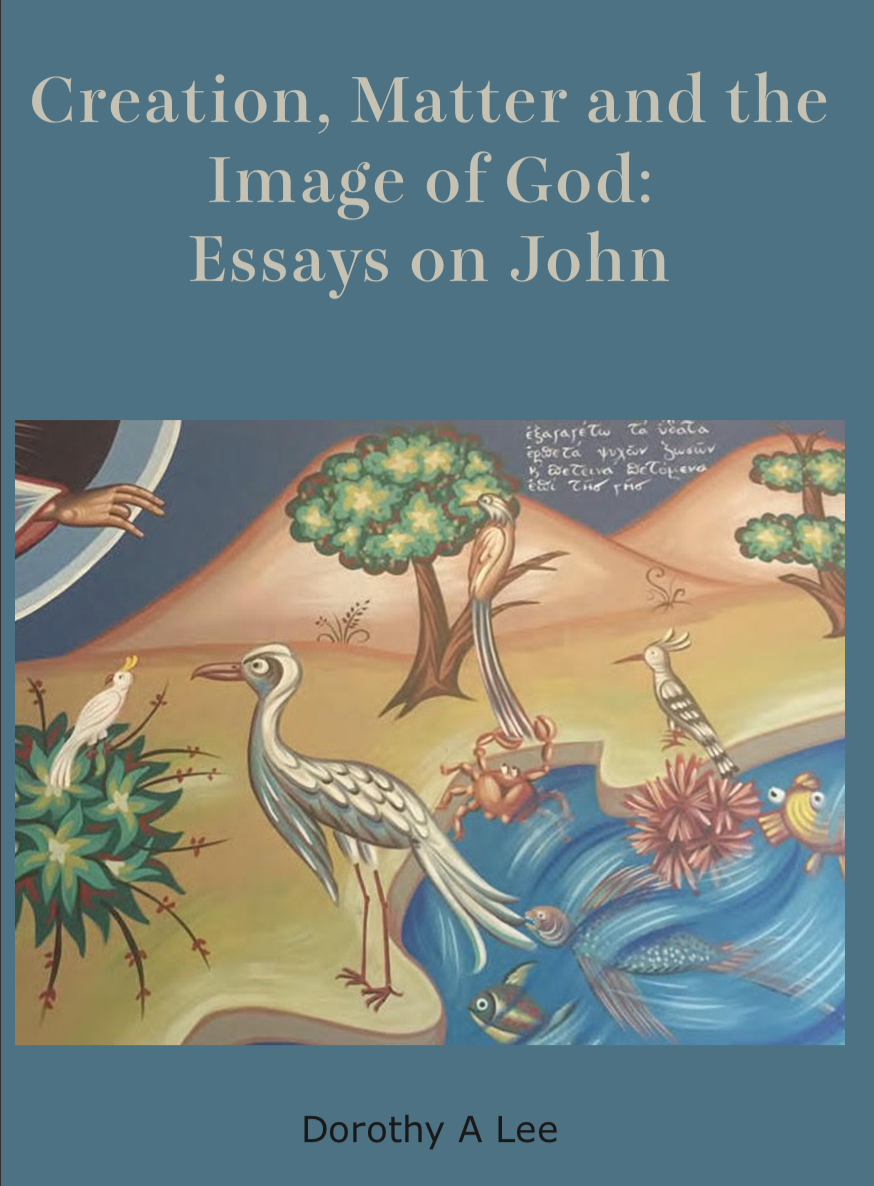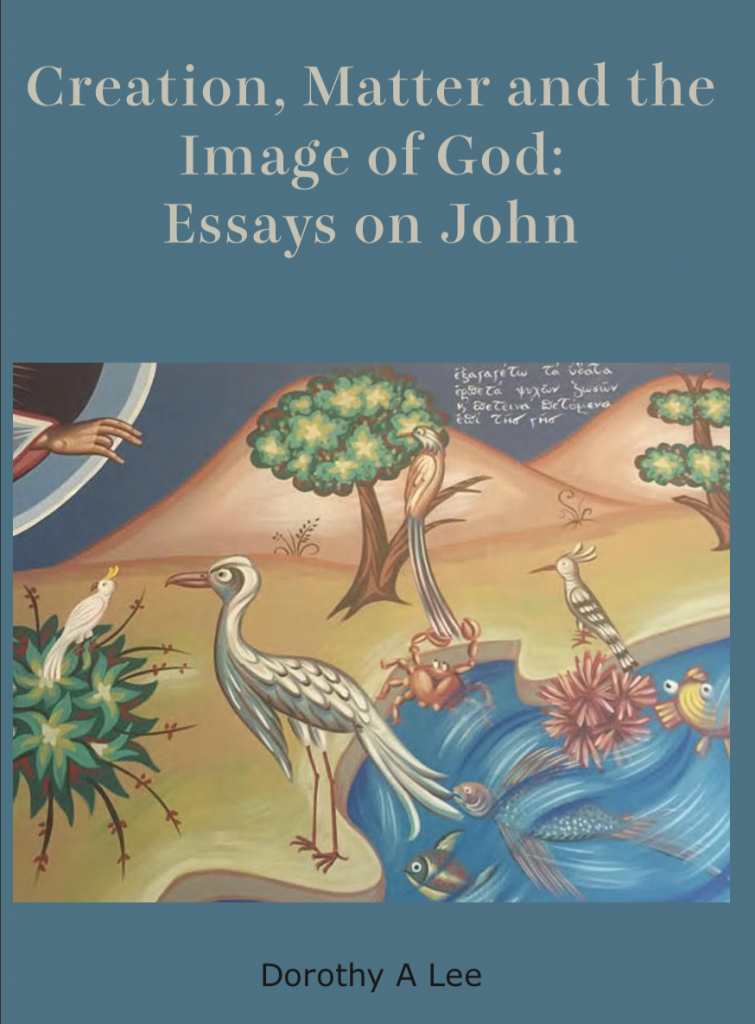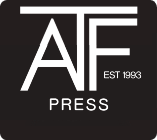
I am delighted to see the publication of this collection of essays on the Gospel of John, reflecting the interpretative journey of one of Australia’s premier Johannine scholars, Professor Dorothy Lee. ATF Press Publishing Group seems to have an endless range of publishing interests, from biblical and theological books, to historical and artistic matters in both Australia and abroad, and the publication of journals. In my prejudice, I suggest that the steady development of the ATF Scholars Collection will be one of this publishing house’s lasting contributions. To this point in the series, essays from across the careers of several leading figures in Australian religious, theological and biblical affairs have appeared. No doubt this series will not prove to be the most financially rewarding initiative of ATF Press. Nevertheless, as a collection it is gradually emerging as a valuable resource for current and future generations of Australian scholars. Recourse to the ATF Scholars Collection will enable them to test the strength and reliability of the shoulders upon which they stand.
Professor Dorothy Lee has made a singular contribution to New Testament studies in Australia, with a special focus upon the Gospel of John. As with the previous volumes in the ATF Scholars Collection many of Professor Lee’s briefer studies of the Fourth Gospel have been gathered into this single volume. Although each essay has its own origins, and has been written for a different audience, one senses an identifiable single-mindedness across the book. The issue of the origins of each essay should be noticed by the eventual reader of the collection. They not only reflect the different worlds “into which” they were aimed, but they also manifest the gradual deepening and flowering of the source “from which” Professor Lee’s contributions have emerged over several years: her imaginative and acute reading of an ancient Christian text.
Whatever one makes of the “diversity” of each essay, generated by its origin, Dorothy’s unique touch is evident in each contribution. Despite the title of the work, this is not just “another book” about ecology or feminist readings of major Johannine questions. The reader will be enriched by her distinct point of view and approach. Dorothy has a capacity to come at critical issues, such as New Testament reflections on the ecology, in its broadest sense, and the roles of women, with a fresh voice. Somehow, she sees clues and questions that most of us miss. Her point of departure and her point of arrival are almost always fresh and insightful. Whoever would have thought of tracing “the senses” in the Gospel of John, and then enriching it with artistic accompaniment? Having these essays, many of which are almost impossible for an Australian audience to find, collected in a single volume is a treasure indeed.
Without wishing to claim too much, Dorothy’s contribution to the ATF Scholars Collection is a striking example of the rich new lode that Johannine studies has discovered in recent decades. It is risky to trace a “grand view” in any discipline, but this book shows admirably that such a view is possible for Johannine studies. The nineteenth century was dominated by a fierce battle over what they called the “authenticity” of the Fourth Gospel, eventually resolved by the decision that – in the light of the Synoptic Gospels – it lacked “authenticity.” The brilliant David Friedrich Strauss, the more sensational agenda of Ferdinand Christian Baur, and the “final word” of Albert Schweitzer saw to the burying of the “authenticity” of the Fourth Gospel at the turn of the century.
Unable to be ignored, the twentieth century saw to the establishment of the Gospel of John as a theological masterpiece. This was the fruit of the rich commentary tradition of such figures as Marie- Joseph Lagrange, Rudolf Bultmann, Edwyn Hoskyns, Charles Harold Dodd, Charles Kingsley Barrett, Rudolf Schnackenburg, and Raymond E. Brown (to mention only the giants). A nineteenth century interpretation that equated “authenticity” with “historicity” was overcome. John’s massive theological and spiritual contribution to an early Church’s efforts to tell the old story in a different way as it spoke to a new world was recognised with increasing clarity. For these commentators, whatever their differences (and they are many), came at the question of the “authenticity” of the Fourth Gospel from a different perspective.
Professor Lee’s work reflects the best of twenty-first century Johannine scholarship, even though the earliest pieces come from before the turn of the millennium. Dorothy’s work – and the work of a number of scholars who share her approach to the Fourth Gospel – have again cast further light on what might be regarded as “authentic.” The single most important feature that distinguishes the work of a newer generation of Johannine scholars is close attention to what the Fourth Gospel has always said, and continues to say, to its Christian audience. Nowadays, “authenticity” no longer equates to “historical,” as it did in the nineteenth century’s quest for the historical Jesus. Did the Fourth Evangelist address perennial human and ecological issues in the world that produced his story? Do the questions he asks about God, Jesus Christ, the human predicament and its hopes, say something to the world in which we live, and the world about which we dream? If the answer to that question is positive, then a Christian of the third millennium can hear an “authentic” voice in John’s Gospel. Professor Dorothy Lee’s collection goes a long way in affirming that voice.
Francis J. Moloney, SDB, AM, FAHA
Senior Professorial Fellow
Catholic Theological College
University of Divinity, Melbourne
Australia.

Creation, Matter and the Image of God: Essays on John
This book gathers together a selection of essays and articles by the author that have as their main focus the Gospel of John. They explore the symbolism of the text and the way it communicates key Johannine themes, using a narrative critical approach, with attention to the theology emer…
